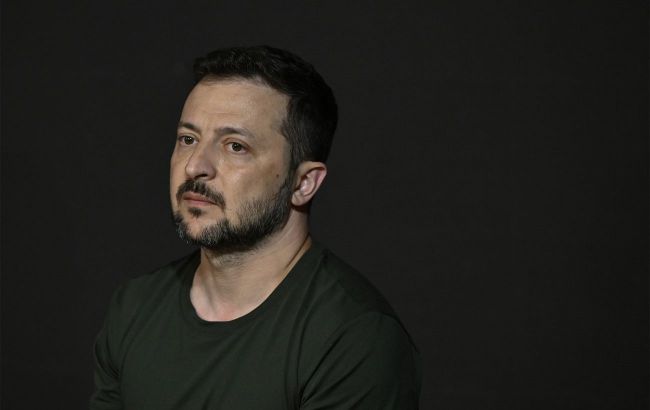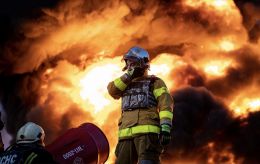Russian forces keep Ukraine's Zaporizhzhia nuclear plant without power, Zelenskyy says
 Volodymyr Zelenskyy, President of Ukraine (photo: Getty Images)
Volodymyr Zelenskyy, President of Ukraine (photo: Getty Images)
Currently, there is no demonstration of real strength from Russia, only terrorist actions directed against civilians and critical infrastructure, President Volodymyr Zelenskyy said at a meeting with journalists on October 8.
"I do not see any demonstration of real strength from the Russians today. They are carrying out terrorist attacks, killing civilians, striking the energy sector and the railways, and so on," Zelenskyy said.
The head of state also spoke about the situation at the Zaporizhzhia Nuclear Power Plant, which is causing growing concern in the international community. According to him, the plant has been operating on diesel generators for a long time due to damaged power lines.
"It has never happened before that the plant was running on diesel for so long without an electricity supply. And what is happening? On both sides — from the territory we control and from the territory we temporarily do not control — the lines have been cut. Who cut them from the very beginning? The Russians," the president emphasized.
He added that the Ukrainian side has repeatedly tried to restore the electricity supply, but the Russians are shelling the repair crews.
"We have repaired more than once — our people were killed because they were shelling the repair teams. We said: 'If you want to repair from one side, let's repair from the other as well.' But the Russians are against it. They do not allow repairs; they are shooting," Zelenskyy noted.
Blackout at Zaporizhzhia NPP
Europe's largest nuclear power plant, the Zaporizhzhia Nuclear Power Plant, had been disconnected from Ukraine's power grid for two weeks. Throughout this period, the facility has been operating in emergency mode, utilizing diesel generators to maintain operations.
Following the disconnection of the Zaporizhzhia NPP from external power sources, a serious situation remains at the plant regarding nuclear safety.
Whether a nuclear disaster at the Zaporizhzhia NPP is possible and whether the International Atomic Energy Agency (IAEA) can help — read in the RBC-Ukraine report.

